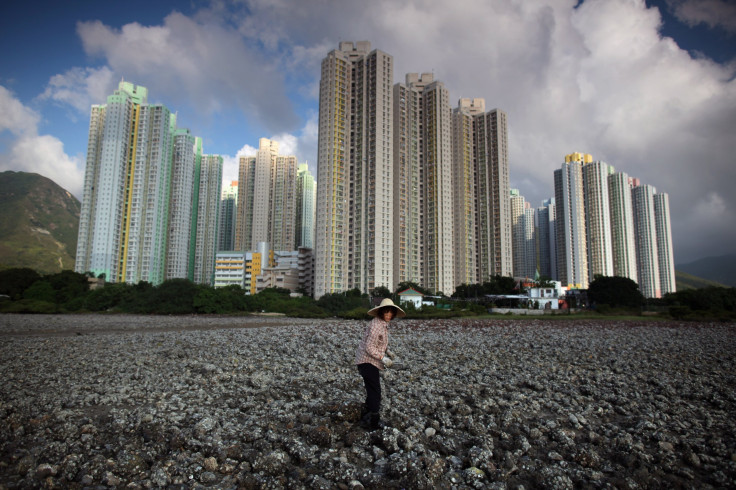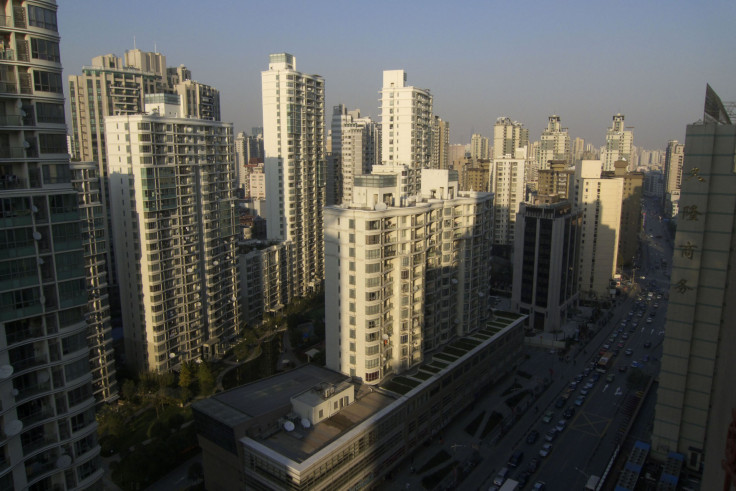China Cuts House Taxes And Limits Land Sales In Bid To Sell Off Vast Housing Inventory

SHANGHAI — China cut taxes on property purchases Monday — the latest in a series of moves designed to boost its flagging real estate market. The government will also restrict sales of land for new developments in areas with an oversupply of unsold property, officials said.
Both moves are seen as aimed at encouraging sales of the country’s huge stock of unsold housing, which totaled some 452 million square meters last year, according to official figures. The government has made reducing this inventory a key priority this year, as it seeks to boost an economy that saw growth slow to 6.9 percent last year, its slowest rate in a quarter-century.
A slowdown in housing sales over the past few years – resulting partly from government restrictions aimed at cooling overheating and speculation – has undermined one of the biggest domestic drivers of China’s growth of recent decades, and hit global commodities markets too. New property investment in China grew by just 1 percent last year, its slowest rate for 7 years, though prices in some areas picked up, and sales of used homes grew rapidly.
Under the new rules, first-time home buyers will see transaction taxes cut to 1 percent for properties smaller than 90 square meters, and to 1.5 percent for bigger homes, state media reported. Second home buyers will pay 1 percent and 2 per cent respectively, instead of the previous 3 percent.
The second home measures do not apply in several of China's biggest cities, including Shanghai, Beijing and Shenzhen, where prices and sales generally rebounded last year, but they apply elsewhere in China, including in smaller inland cities where prices continued to fall last year, and where oversupply of property is most pronounced. Home owners will also now be exempt from paying business tax if they resell their home after two years.
The measures come on the heels of recent cuts in the minimum down payment for home buyers in most major cities, from 25 percent to 20 percent for first homes, and from 40 percent to 30 percent for second homes. It was the third time the authorities had reduced the down payment requirement in the past year. The government has also sought to boost housing sales by raising the interest rate for deposits in the country’s housing provident fund, which encourages employees to save money to buy homes. Fifty local governments are now also offering purchase subsidies to buyers, according to the South China Morning Post.

“China’s central government is aiming all of its bureaucratic weapons at the housing market in the early months of this year,” Michael Cole, an analyst at Shanghai-based real estate consultancy Mingtiandi, wrote Monday.
The authorities are expected to announce further measures to stimulate the housing market at the annual session of China’s legislature next month. One plan under discussion would involve providing subsidies and incentives to encourage tens of millions of rural migrant workers to buy unsold homes in China’s cities, as part of the government’s plan to urbanize 100 million people in the next five years.
And in a separate move, China’s ministry of land and resources announced that in future, it would link approval of land sales for new real estate projects to local governments' success in reducing their inventory of unsold housing — and in some cases, to whether they had sold homes to migrant workers, the South China Morning Post reported. Areas that did not meet these criteria would not be allowed to sell so much land for commercial development, the report said.
Such a move, if implemented, could mark a shift in policy in a country where land sales are believed to have accounted for between 30 and 60 percent of local government’s revenues over the past 15 years, according to various estimates.
The government will be hoping the new move encourages not just home purchases but also boosts a range of related industries, from home renovation to furnishing. And with further measures, including cuts in bank lending rates, predicted by many analysts, it could be good news for real estate developers struggling as a result of the slowdown in the market — such as Shenzhen’s Kaisa Group, which has been struggling to restructure overseas debts.
However, any restriction on land sales may not be such good news for commodities industries in China and elsewhere. Steel and cement producers have been hard-hit by the slowdown — China's steel industry recently reported falling profits, and plans to lay off as many as 400,000 workers in the coming years.
And Mingtiandi’s Michael Cole also noted that the proposed restrictions on land sales are "likely to face fierce resistance from local governments which will be hard-pressed to find replacements for their lost land sales revenues.”
The process of tackling China's unsold housing inventory is likely to be a long one: the government has said it could take six years to sell off the housing stock, according to official reports, and analysts at HSBC have said China has enough empty apartments to house 90 million people. Some experts have also questioned the viability of selling homes to migrant workers, even with subsidies — since property prices in Chinese cities have risen so high proportionate to incomes in recent years.
The Shanghai Daily newspaper quoted one local analyst as saying that while the cut in tax was a “good thing” for home buyers, it was only “the tip of an iceberg" considering the “extremely high cost of homes in the city."
In a meeting over the weekend, the Chinese government also announced wide-ranging new plans to rein in often uncontrolled urban development, proposing limits on city size (Shanghai has said it aims to cap its population at 25 million, or just a few hundred thousand more than its current level) and more emphasis on green buildings and public transport, including underground networks. It also pledged to end, "in principle," the construction of gated communities, which dominate many new residential districts in Chinese cities. The meeting called for better preservation of the distinctive architectural characteristics of China's cities — which many critics say now look increasingly alike — and pledged to stamp out “bizarre" architecture, something President Xi Jinping has previously criticized, with stricter punishments for those who violated planning regulations.
© Copyright IBTimes 2024. All rights reserved.






















